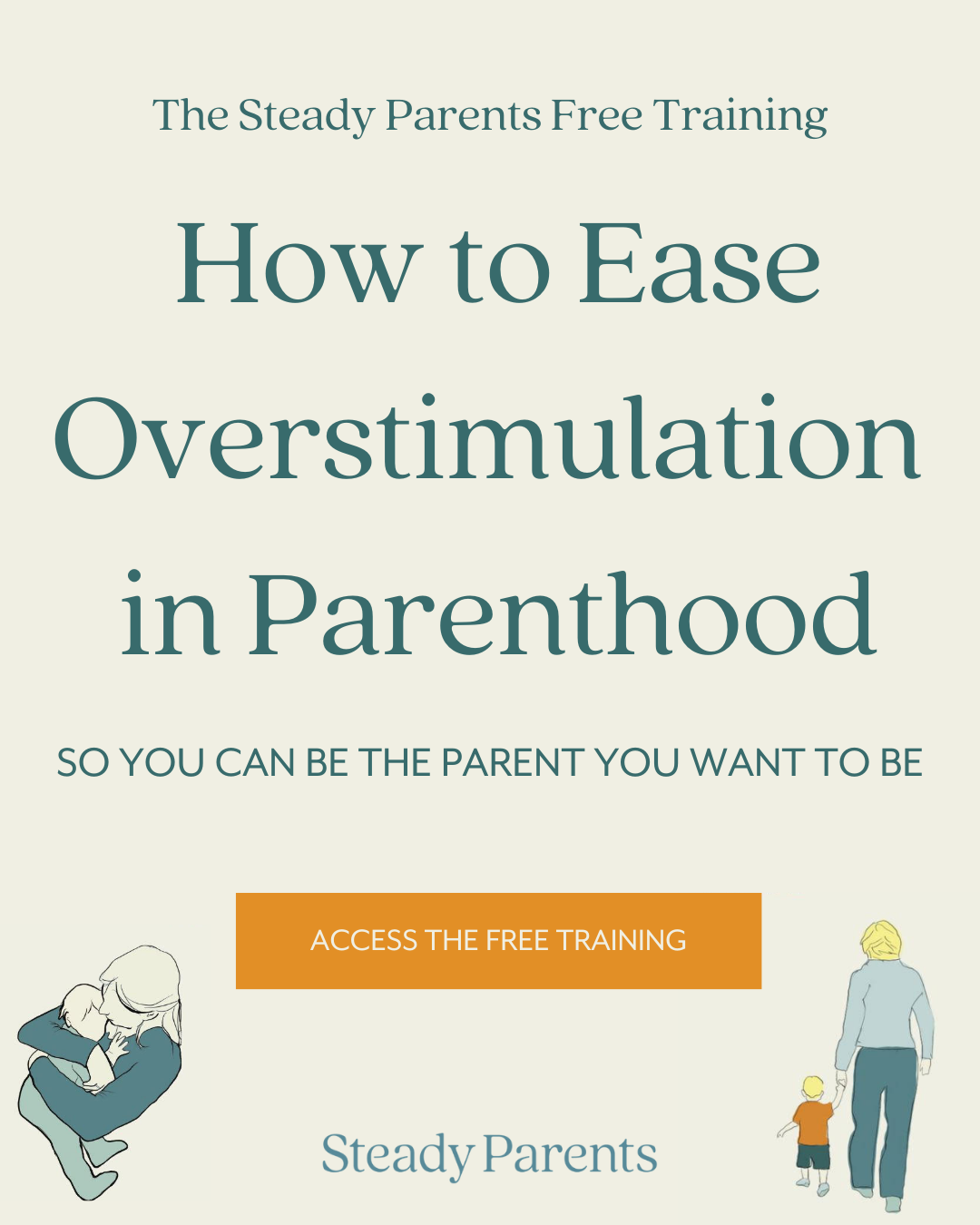Supporting Sensory Regulation in the Face of Crisis
Have you stopped to think about how your sensory system affects the way you make sense of crisis? Or how crisis affects your sensory system? The two are so intimately intertwined, but we rarely take the time to appreciate this relationship.
The sensory system is responsible for taking in and interpreting the world around us, significantly impacting our well-being, emotions, and daily functioning.
During times of crisis, whether it's horrifying current events, personal hardship, a global pandemic, or any other challenging situation, our sensory processing can become even more important. It can be both a source of stress and a powerful tool for coping.
“It’s like my whole body gets filled with cement, and my bones ache. ”
As someone with deep Palestinian roots, I feel this intimately. The trauma of the Palestinian/Israeli crisis has been passed down in my genes for generations, and the minute anyone in that region is killed (Palestinian or Israeli), I feel it in my gut.
It’s like my whole body gets filled with cement, and my bones ache. Even though I’m in California, and I no longer have close family in Palestine.
It is important for you to realize that the trauma of your ancestors, whether they violently suffered in the Holocaust, were killed or expelled from their land in North America when Europeans came and colonized, were forcibly brought to America on the slave trade and experienced the trauma of slavery and deep racism in the US, struggled through deep poverty, or any other awful, violent cascade of events in history, that trauma runs through your DNA, too.
Which means, our nervous system is primed to be activated when something similar triggers this trauma. Our nervous system is ready to fight, because the nervous systems of our ancestors had to fight.
To learn more about intergenerational trauma, this article gives a great overview.
In this blog post, we’ll explore sensory regulation strategies that can help keep you regulated in times of crisis, and encourage you to consider regulation as a form of activism.
By understanding your sensory needs and employing these strategies, you can regain a sense of control, manage your emotions, and process what is happening so you can move forward in a way that is effective and impactful.
Understanding Sensory Processing
Before we dive into sensory regulation strategies, let's take a moment to understand what sensory processing is all about.
Our sensory system includes our senses of touch, sight, sound, taste, and smell, as well as our proprioceptive and vestibular senses. These senses work together to help us interpret and respond to the world around us.
Sensory processing is the brain's ability to organize and make sense of all the sensory input it receives.
During a crisis, our sensory processing can be affected.
You may become hypersensitive, tuning in to every detail of the crisis (such as an almost addictive need to immerse yourself in news or social media), which then activates your nervous system even more. Reading or recalling traumatic information actually makes your nervous system think it’s in the trauma, which can activate a constant state of hypervigilance.
You may find yourself more quick to irritability, overwhelmed by clutter, touched-out more frequently, or more triggered by competing noise in the house.
Or, you might withdraw, avoiding or shutting off sensory input to protect yourself.
These responses can lead to feelings of anxiety, stress, and emotional overload. Which ultimately, doesn’t do anything for solving the crisis. It just makes it harder for you to be present and purposeful in your life.
Recognizing Sensory Shifts In Times of Crisis
The first step in effectively managing your sensory processing during a crisis is to recognize the unique challenges you're facing.
Are you more sensitive to noise, touch, or light?
Are you constantly seeking sensory input to calm yourself?
Or do you find that you're avoiding certain sensations?
Identifying your sensory triggers can help you tailor your regulation strategies.
Sensory Regulation Strategies
1. Deep Pressure Touch
If you're feeling overwhelmed, deep pressure touch can work wonders. It releases serotonin which is a generally regulating neurotransmitter, and is a go-to sensory strategy.
Consider using weighted blankets, compression garments, or deeply hugging yourself or a loved one. The gentle, evenly distributed pressure can provide a sense of security and comfort and help you ground yourself into your body.
2. Grounding Strategies
Mindfulness, deep breathing exercises, and meditation can help calm the nervous system. These activities allow you to pause & process rather than push forward.
An effective breathing strategy, one that often works when others don't, is the physiological sigh. Take a deep breath in, filling your lungs almost to capacity. Take one more short inhale, and then slowly exhale through pursed lips.
3. Movement and Exercise
Physical activity is a very effective way to regulate sensory processing. Heavy work, or moving against resistance, helps to reduce overstimulation AND bring you into a steady, regulated state.
Consider activities like yoga, stretching, dancing, or hiking to help you cope with stress.
4. Visual and Auditory Tools
In a crisis, it's important to manage your visual and auditory environment.
When you’re in a hypervigilant state, your peripheral vision gets exaggerated (it’s looking for lurking danger!) and your auditory system gets turned on to the max level.
Visual and auditory tools might include:
Create one clear, clean space to rest your eyes when the rest of the house is chaotic
Take your work, kids, or meals outside
Bring your visual awareness to one thing in your central vision (your child’s face, for example)
Turn on soothing rhythmic music. Rhythmic music can help you enter a state of regulation (even if you’re triggered by noise!).
It may feel helpful to listen through headphones so you’re not competing with background noise. And, music that brings about a sense of identity and meaning (traditional, nostalgic, or cultural music, for example) can increase the regulatory effects even more.
Put on noise-canceling headphones to reduce sensory input and create a more peaceful atmosphere.
5. Sensory Breaks
Give yourself permission to take short sensory breaks. Find a quiet, calming space where you can reset your sensory systems.
6. Relationship
Safe, secure relationships are the most impactful way to support your sensory system. Feeling seen through the eyes of another helps bring us out of the hypervigilant state and into a state of connection and meaning.
Take a few moments to be with your children (physically AND emotionally). Soak them in and laugh with them. Put your phone down after bedtime and spend a few minutes talking with your partner. Call up a friend and ask if you can do a grocery run together.
“Feeling seen through the eyes of another helps bring us out of the hypervigilant state and into a state of connection and meaning”
Creating a Personalized Plan
Your sensory needs are unique, and what works for one person may not work for another. Take the time to assess your sensory preferences and triggers, and create a personalized plan that you can adapt to different crisis scenarios.
Don't hesitate to seek guidance from an occupational therapist to develop a plan tailored to your specific needs (our Sensing Your Needs in Parenthood program walks you through creating your personalized plan to reduce overstimulation and find steadiness in parenthood).
Supporting Others
Remember that sensory challenges are not limited to you alone. Friends and family members may also be dealing with sensory struggles during a crisis.
Be empathetic, practice compassionate active listening, and create a sensory-friendly environment for those around you. You can hold your internal boundaries without severing the relationship, even if they are experiencing the same crisis through a different lens (assuming they have not crossed any lines and have your safety and well-being in the forefront of their mind as well).
Maintaining empathetic, supportive relationships with others is what will create lasting change.
We have a community of 90,000 parents on Instagram, and when I approach my writing about the Palestinian/Israeli crisis through a supportive regulation lens, I’ve received only love and appreciation from people of all backgrounds.
It’s important to acknowledge and appreciate this. In a world seemingly filled with hate, there are large communities of people who are working towards regulation, safety, and healing for future generations.
Self-regulation allows you to think critically, have hard conversations, process what is happening, be present with your family, and continue fighting without burnout. Essentially, it allows you to do what needs to be done, in an effective, impactful way.
Regulation is a form of activism.
Pin these for later:








